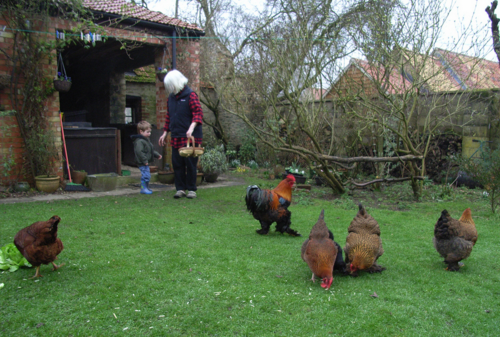
Keeping chickens in an urban environment can be a rewarding and productive exercise. However, there are various things that must be taken into consideration before embarking on urban chicken keeping.
Things to address
Consider the following things when planning to keep chickens in an urban environment:
- Is the keeping of chickens permissible in your urban area? Check with the local municipality first of all, as a number of urban locations ban or limit chicken keeping. Even where chickens are allowable in an urban environment, roosters are often banned due to their noise.
- Do you think your neighbours will mind? While it's usually your business what you do in your own backyard, it's generally useful to maintain happy relations with those next door.
- Do you have sufficient space for the chickens to roam during the day? Keeping chickens in a small cage is not an option for a happy, healthy chicken and owner. Large chicken coops, tractor coops (chicken tractors) or free roaming are the options to consider. Do not keep a chicken in a small cage!
- Do you have dogs? If so, are you prepared to train the dog to leave the chickens alone, from the very beginning? On this note, even if you don't have dogs, do you have a fully fenced-off area in good condition to prevent neighbouring dogs from chasing your chickens?
Are you ready for the ongoing responsibilities?
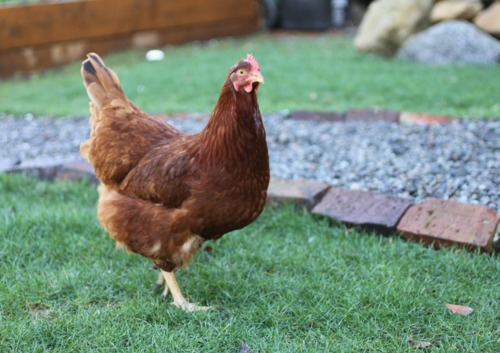
- Will you be able to feed and water the chickens daily? This includes making arrangements for the times you go away. It is a good idea to see whether there are pet sitters or neighbours willing to care for chickens if you need to travel a lot or go on regular vacations. Also consider the expense involved in having others care for your chickens.
- Are predators likely to be a problem? Many predators are perfectly at ease in the urban environment, including foxes, leopards, raccoons and possums. Mostly it will be okay to leave chickens outside during the day but by evening the chickens must be housed in a secure location until the following light. Can you, or someone else responsible, ensure that the chickens be in bed in time each day? If not, can you provide appropriate housing should the chickens need to be left inside whenever you cannot make it back on time? (Appropriate means spacious, well ventilated, unlikely to get too hot or cold, etc. and with sufficient enrichment for the chickens to be happy.)
- Do you mind having to rush a chicken to the vet if it gets sick? Are you willing to medicate it if needed?
- Are you able to provide a varied and interesting diet for the chickens? Chickens are omnivorous and require both plant and insect/animal food. If they roam, the insect part is easier, plus they take care of garden bugs.
Think about what having chickens at home might mean for the state of your yard:
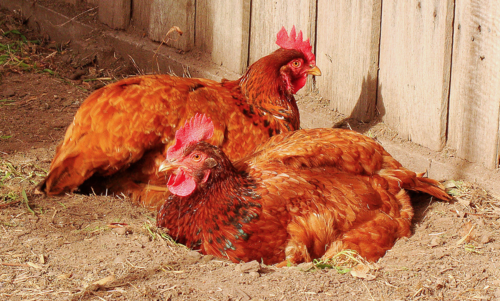
- Will you mind the mess they leave behind whenever they poop just where they please?
- Do you mind parts of your garden or yard being turned into dust baths or just generally being scratched up?
- Do you mind chickens sharing some of your vegetable garden should they happen to take a liking to it? Or, fence it off from them if needed? In some cases, you might like to fence off weedy patches and let the chickens roam freely there to get double benefits!
If you've got great answers addressing all of these things, then you're good to start planning the keeping of chickens in your urban environment!
Setting Up the Chicken Housing
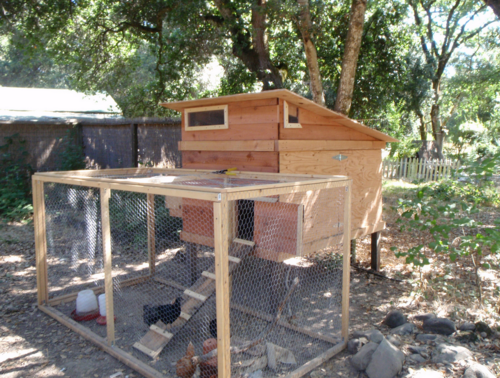
Choose appropriate chicken housing. You can buy or build chicken coops. If you buy a used one, wash it down and disinfect it well before introducing new chickens to it, ensuring that any bacterial or fungal problems have been removed.
You may also find it handy to have a chicken tractor that can be moved around, either as primary or secondary housing. If it is primary housing, it needs to be sufficiently large for the number of chickens you're keeping.
Roosting is an option for some where the nighttime temperature does not fall too low and where predators cannot climb. If roosts are used and the chickens have clipped wings, you will need a gradation of roosts to allow for hopping up to the highest roost. You must know the actions of local predators before using roosting as a housing option.
Choosing Chicken Breeds
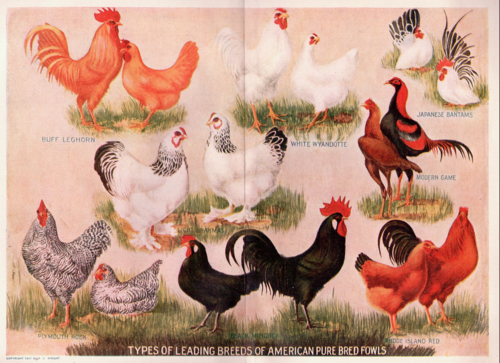
Most chicken breeds can handle the urban environment, although larger birds require larger areas and meat birds are less useful where all you're seeking are eggs and/or chicken companions. Do some research into the different breeds that might suit your yard space and needs.
Bantams are a good choice where space is an issue.